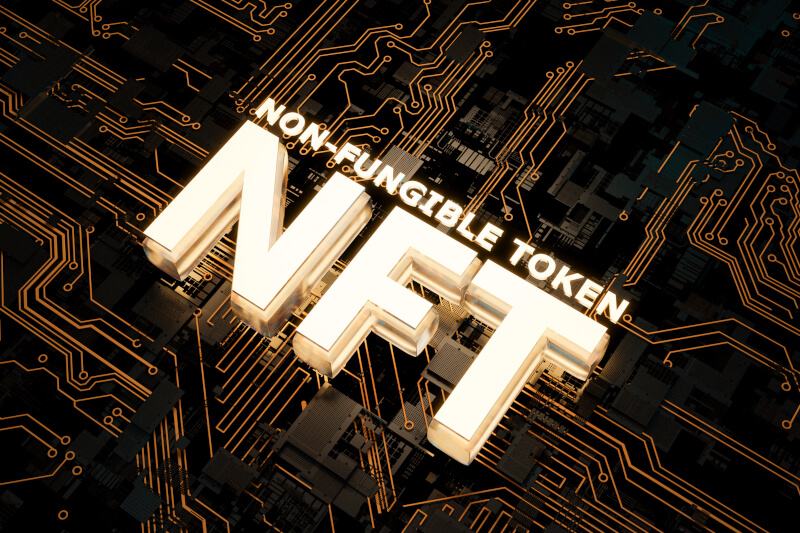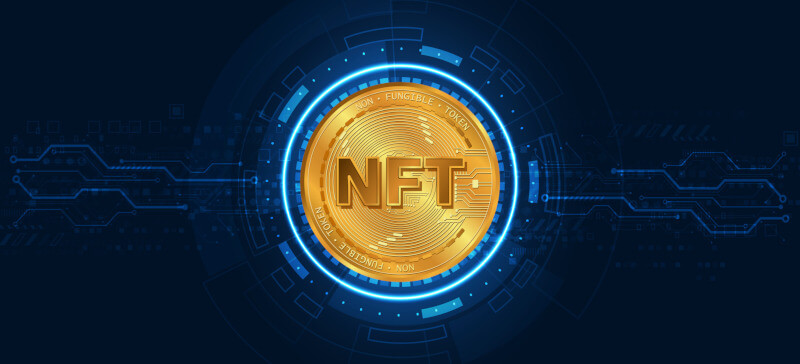It’s no wonder that the trading of unique and collectible whiskies is taking place on the blockchain in a world where whiskey has grown into a popular financial possibility. One excellent illustration of this phenomenon is the recent unprecedented sale of a Rare Macallan whiskey cask NFT by VCL Vintners. The Macallan single malt whiskey in the cask sold at auction for a record-breaking $2.3 million. This ushered in a brand-new era for the premium whiskey industry, and similar successes are sure to follow.
Exactly What is an NFT, and How Does It Function?
Non-fungible tokens (NFTs) are digital assets on the blockchain that can only ever be used once. These NFTs trade hands on crypto-asset exchanges, such as Ethereum. Fungible refers to something that can be substituted for another of the same type. For instance, any $1 bill in the world can be exchanged for another dollar bill anywhere in the world. An NFT, however, cannot be exchanged for other NFTs. Each token represents a distinct asset because of this. Digitally “minted,” with a unique identifier, NFTs can be bought, sold, and traded, unlike any other kind of asset.
What Makes Them So Well-liked by the Public?
NFTs’ rising popularity can be attributed to the improved ownership and safety they provide. Tokens are perfect for high-end products like whiskey because they cannot be duplicated or counterfeited. They are safe and cannot be altered because they are stored on the blockchain. That whiskey you just bought is 100% legit, you will be sure of it now!
The rarity of NFTs has also contributed to their rising profile. Due to their scarcity, several NFTs have become sought-after collectibles. It’s no surprise that NFTs are catching on with whiskey aficionados given their ability to replicate the spirit of the high-end market. Luxury NFTs provide a novel method of storing and accessing high-priced assets on the blockchain. They add a layer of protection for collectors worried about theft or counterfeiting their valuables.
So, Now What?
The number of use cases for blockchain technology among producers of high-end products is growing. Development of the emerging technology will be fueled by the increasing popularity of tokenizing and trading in luxury goods like wine, art, and other collectibles via NFTs. The whiskey industry is among the first to embrace blockchain technology for its security and transparency benefits. This creates a fantastic new opportunity for anybody interested in buying and selling rare bottles to do so.
How Do You Trade NFTs?
Decentralized exchanges (DEX) are typically used for trading NFTs. This eliminates the need for a third party to facilitate the deal. This eliminates the possibility of a third party holding your bottle ransom and speeds up the exchange.
Instead of a physical bottle of scotch, trading platforms simply operate as a marketplace where NFTs can be bought and sold. The immutability of the blockchain prevents the smart contract from being removed or tampered with.
Blockchain-based Whiskey

Chivas Brothers was the first whiskey firm to declare plans to employ blockchain technology in 2018 when it revealed it will use RFID chips and a public Ethereum protocol to track its casks of Scotch. Many other whiskey producers, such as The Macallan, Glenfiddich, and Johnnie Walker, have followed suit since then. All of these businesses are working towards the same goal: establishing a blockchain-based, unchangeable record of the whiskey’s origin.
Information such as the distillery, bottler, and purchaser may be included. The obvious benefit to buyers is that they will know that the bottle they are purchasing has not been faked. However, the producers stand to gain as well. Tokenizing a whiskey cask, for instance, would allow its creators to sell it in an extremely small run as a digital asset. This gives them access to the expanding market for high-end whiskies, which should lead to increased profits. It also enables them to monitor the whiskey’s progress from the still to the bottle, providing invaluable feedback on the product’s reception.
Whiskey Culture is Evolving
Digital assets and NFTs (non-fungible tokens) have grown more commonplace as a result of the widespread adoption of blockchain technology. Companies like Glenfiddich and Johnnie Walker, leaders in the luxury whiskey industry, have already begun this trend.
All of these businesses are working towards the same goal: establishing a blockchain-based, unchangeable record of the whiskey’s origin. This information may contain the distillery name, the year of production, and the cask number, among others. All of this data would be viewable by anybody on the blockchain, giving you complete transparency into where your product came from.
In What Contexts Might NFTs Be Useful?

There are many uses for NFTs, but they may be boiled down to three primary categories:
Ownership
It is possible to buy a one-of-a-kind NFT and resell it to collectors. This might include everything from a piece of digital art or music to a piece of virtual land. Nonetheless, non-fiat tokens (NFTs) can be used to acquire actual property. As we’ll see, the blockchain may be used to store and track a wide variety of assets, including shares of real estate, vehicles, and even luxury beverages like scotch.
Documentation of Authenticity
NFTs aren’t only a way to prove ownership over an item; they also allow for more transparency and audibility inside the blockchain ecosystem. You can verify the authenticity and integrity of a product like a whiskey by purchasing an NFT-enabled bottle. This is a huge plus for expensive products like whiskey since it safeguards buyers against impostors. It’s also a convenient way for collectors to check an item’s legitimacy.
The movement of goods through the supply chain can also be monitored with the use of tracking NFTs. For example, this could involve checking the whereabouts of a cargo of high-end whiskey as it passes through customs. The supply chain can be monitored with NFTs as well. The process may involve learning everything from the origins of the ingredients to the manufacturing process itself. The provenance and authenticity of an object can even be checked using NFTs.
To What Extent Do Whiskey NFTs Help?

Possessing a whiskey NFT has many advantages:
Transparency
The blockchain is a distributed ledger that makes all transactions public and auditable. As a result, there is more confidence between purchasers and vendors, and fraud is reduced.
Continuous Monitoring
An NFT stays with the product from the distillery to the bottle even if the bottle changes hands numerous times before it’s drunk. Collectors and traders alike will appreciate being able to track the whereabouts of their assets over time since this will lessen the risk of value reduction due to forgery or counterfeiting.
Not a Fake
Because each NFT is distinct and verifiable on the blockchain, forgeries of these assets are nearly impossible to pull off. Due to the unique nature of each NFT, both purchasers and vendors may rest assured that the items they are purchasing are genuine at all times.
Ownership
Through the blockchain, an NFT owner may verify their ownership. This is significant because it facilitates buying and selling by removing the need for a lengthy registration process; the new owner will receive proof of purchase alongside the product.
It’s An Exclusive Product
The scarcity of a product might make it more valuable than others of the same type. NFTs can be utilized to make a small number of a specific product. The product’s potential market value and appeal are raised as a result of this.
Details on the Product
An NFT can also be used to hold metadata such as a product’s description, country of origin, or proof of validity. NFTs can be used to keep track of the vintage year of wine or the barrel number of whiskey, for instance.
Transacting Easily
Due to NFTs’ decentralized structure, it is simple for both buyers and sellers to connect and do business. Because all the money changes hands on the blockchain, a middleman isn’t necessary. For both parties involved, this can be a time and cost saver.
Equity Division
New investors can enter the market now that they can buy a share of a whiskey bottle. This could be an excellent opportunity to test the waters of the whiskey industry without making a major financial commitment.
Whiskey’s Digital Future
The aforementioned advantages are merely the tip of the iceberg when comparing NFTs to regular whiskey bottles. We can anticipate further advantages as this emerging sector develops. The future of high-end whiskies appears promising, as early consumer feedback has been extremely positive.

